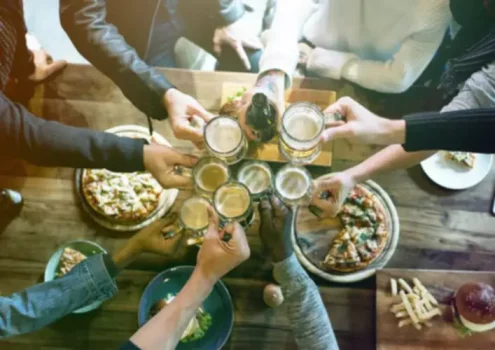
If you know someone who is a covert narcissist, take steps to protect yourself and your emotional well-being. Learn to recognize the signs, don’t take their behavior personally, and create distance between you and that person to help establish clear boundaries. People with narcissistic personality disorders share similar traits with https://ecosoberhouse.com/ addicts, and both types of narcissistic personality disorder may lead to addiction. Talk therapy can be an effective treatment for people with narcissistic personality disorder. It can help them learn ways to develop empathy for others, assess their capabilities realistically, and improve their ability to regulate their emotions.

Differentiating Covert Narcissistic Alienation
Their vulnerability as narcissists is reflected in anger and aggression, envy, helplessness, feelings of emptiness, low self-esteem, and shame. Their behaviors can be easily observed by others and tend to show up as “big” in a room. Overt narcissists demonstrate more extroverted behaviors in their interactions with others. Covert narcissists are only different from overt (more obvious) narcissists in that they tend to be more introverted. The overt narcissist is easily identified because they tend to be loud, arrogant, insensitive to the needs of others, and always thirsty for compliments.
Grandiose Narcissism and Alcohol Outcomes

While narcissism and alcoholism don’t always occur together, there are some reasons why narcissists might be more prone to developing an alcohol use disorder than the average person. Simine Vazire and David Funder decided to look into what caused these self-defeating behaviors, asking was it a function of conscious cognitive and covert narcissism and alcoholism affective processes or something else. They honed in on impulsivity and conducted a meta-analysis of the existing literature. If so, that seems to make the kinship ties of narcissism and addiction even more evident. Some experts also distinguish between adaptive and maladaptive narcissism, the potential sixth and seventh types.
- Diagnosis of overt NPD is based on evidence of the behaviors and traits of the condition as outlined in the DSM-5.
- Vulnerable narcissism features traits like low self-esteem, helplessness, and rejection sensitivity.
- Without treatment, people with NPD have trouble maintaining positive relationships and are vulnerable to abusing drugs and alcohol to cope with difficult emotions.
- “Covert narcissists get their attention in very subtle and sneaky ways, and they often may not even know that they’re doing this,” says Dr. Albers.
- Read more about living with a person who has AUD and managing a relationship with someone who has NPD.
Recognizing Covert Narcissist Traits
In particular, she’s committed to helping decrease the stigma around mental health issues. When they believe someone’s treated them unfairly, they might feel furious but say nothing at the moment. Instead, they’re more likely to wait for an ideal opportunity to make the other person look bad or get revenge in some way. “People under deep pressure to be pleasing and likable to themselves have to go to great lengths to keep that up and preserve their self-esteem. Failing to keep up that illusion involves the bad feelings that come with the reality of failure,” Joseph says. Criticism is a threat because it constitutes evidence that the person’s negative view of themselves may actually be true.

Traits of Covert Narcissists
- Borderline personality traits often manifest as intense emotions, fear of abandonment, and unstable relationships, while covert narcissism involves manipulation, grandiosity, and a lack of empathy.
- It found that individuals with grandiose narcissism have more friends and followers, post more often, and spend more time on social media than other people.
- People who think that they may have an addiction or a personality disorder should consult a doctor or mental health professional for advice and treatment.
- This article discusses the similarities and differences between people with narcissistic personality disorder and those with alcohol use disorder.
- While all people with narcissistic traits can be overly concerned with how they appear to others, antagonistic narcissists are particularly concerned with coming out “on top.”

